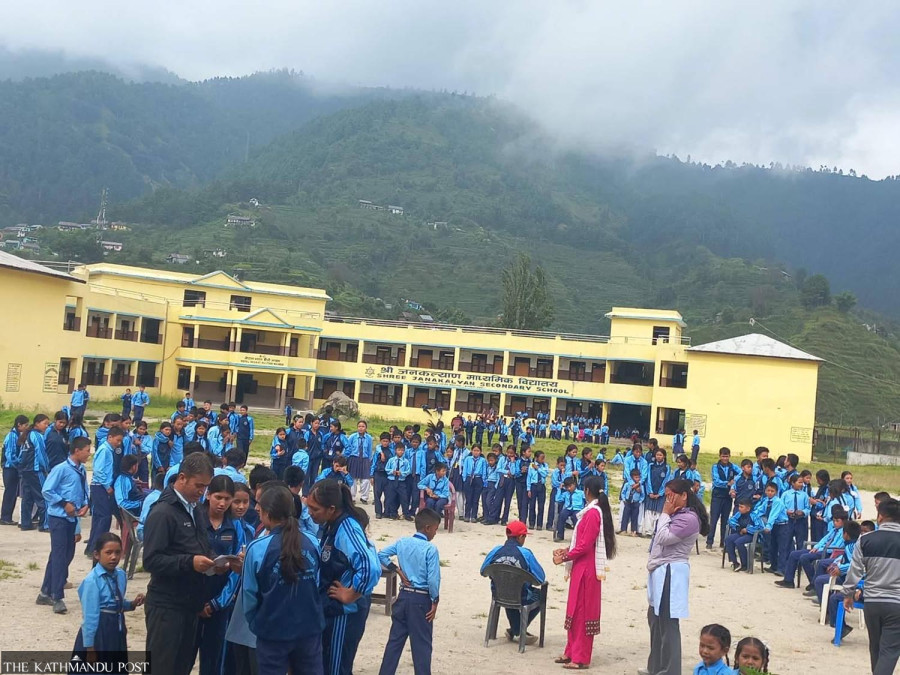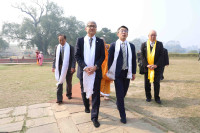National
Several schools in Achham district close technical education classes
Once-promising programmes in civil engineering, agriculture, and animal sciences lie dormant for lack of staff and funds.
Menuka Dhungana
What once began as a promising drive to expand technical education across Achham, a hill district of Sudurpaschim Province, has now faltered, with most secondary schools closing their technical and vocational programmes due to a lack of resources, trainers, and students.
A few years ago, several schools in the district obtained accreditation from the Council for Technical Education and Vocational Training (CTEVT) and introduced diploma courses in civil engineering, agriculture, and animal science. The initiative initially drew local youths eager to acquire practical skills without leaving their communities. But today, many of those programmes lie dormant.
“Both our civil and geomatic engineering diploma programmes have been discontinued this year. CTEVT grants affiliation, but the burden of managing resources falls on schools. Without adequate funding for lab equipment and training materials, we struggled to maintain quality. When student numbers began to fall, we had no option but to shut down the programmes,” said Tek Bahadur Saud, principal of Janakalyan Secondary School in Sanphebagar.
Saud said it has become increasingly difficult to retain qualified instructors in remote areas. “Trainers don’t want to stay here, and even when we find them, we can’t afford to pay competitive salaries,” he added. “Students prefer to move to urban centers for better opportunities, leaving local technical classes nearly empty.”
According to Harish Bhatta, head of the education division at Saphebagar Municipality, several schools including Surya Chandra Secondary School, Prabha Dhamkot Secondary School, Mahendra Secondary School and Betalmandau Secondary School discontinued classes of technical programmes. “The enthusiasm we saw five years ago has faded. Schools are facing shortages of both instructors and students,” said Bhatta.
The same situation is evident in Mellekh Rural Municipality where Nandeshwari Secondary School in Shodasha suspended its CTEVT-accredited civil engineering diploma two years ago. “We started the programme in 2019 with 24 students in the first year,” said Prithvi Bahadur Rawal, principal at Nandeshwari Secondary School. “By the fourth year, only six students had enrolled. Eventually, we had to close the programme because we couldn’t find qualified trainers or enough funds to run practical sessions.”
Rawal said the lack of effective monitoring from CTEVT worsened the situation. “They approved the programmes initially but didn’t follow up with regular support,” he said. “Without budget and technical guidance, sustaining such programmes in rural areas was impossible.”
Programmes in agriculture have also suffered. Jalapadevi Secondary School in Kamal Bazaar Municipality and Kalikeshwari Secondary Schools in Turmakhad Rural Municipality halted classes of pre-diploma courses in plant science. Likewise, the diploma-level agriculture programme at Saraswati Secondary School in Bannigadhi Jayagadh Rural Municipality has also been closed.
CTEVT has planned to decentralise technical education to make skill-based learning accessible in all local units. However, poor infrastructure, untrained staff, and inadequate government funding have derailed that goal, especially in remote hill districts like Achham. “The dream of teaching practical skills in our own villages was commendable. But without long-term planning and resources, that dream has withered before it could take root,” said Said.




 9.12°C Kathmandu
9.12°C Kathmandu















